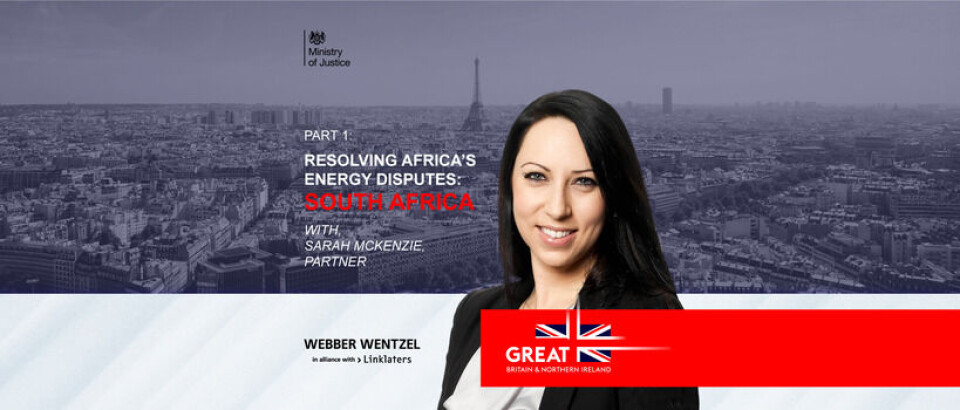The recent Africa Energy Dispute Resolution Roundtable, hosted by the UK Ministry of Justice GREAT Legal Services and Africa Legal at the British Embassy in Paris, alongside the International Bar Association Conference, offered a platform for sharing diverse perspectives and highlighted the vital role of legal experts in influencing trends and practices in the energy sector. Clemence Prevot from Jus Mundi also used the opportunity to present the findings from the 2023 Energy Disputes Report.
The event built a solid foundation for important discussions with decision makers on the topic, with participants including high-level representatives from some of Africa’s top law firms engaged in this space, as well as partners from other international law firms, and UK Ministry of Justice officials. In this, the first of four articles focusing on discussions at the event, we take a closer look at South Africa’s energy dispute landscape.
“The disputes in our market are currently being run against the backdrop of an energy crisis and the extreme pressure that the urgent need for a resolution to that crisis brings,” pointed out Sarah McKenzie, partner at Webber Wentzel. “Inefficiencies and delays in the resolution of disputes have the potential to derail progress in resolving the crisis, and careful management is critical.”
At the roundtable, McKenzie and other participants discussed how to facilitate impactful conversations with decision makers in South Africa. McKenzie underscored the important role legal practitioners play in influencing government and regulatory bodies.
Her commentary aligned well with the broader themes of the roundtable, including the exploration of efficient dispute-resolution mechanisms and the role of practitioners in shaping governmental support.
South Africa has a very well-developed arbitration practice, and McKenzie noted that many of South Africa’s energy disputes are resolved by way of arbitration. “It can certainly be an efficient dispute resolution mechanism. What is key, though, is ensuring that selected tribunals and counsel are well-versed in the nuances particular to the energy sector and that contracts are drafted well to ensure that the right framework for the efficient resolution of disputes is agreed upfront.”
Considering that most energy disputes involve parties from different jurisdictions, the roundtable discussion focused on maximising the impact of local and international counsel working in collaboration. This aspect is crucial, said McKenzie, emphasising the importance of strategic communication, mutual respect and trust-building in international partnerships.
“Webber Wentzel regularly works with international counsel, both in relation to energy disputes with a South African link and in relation to disputes in other jurisdictions,” McKenzie said, pointing out the advantages of being part of a broader network. “It’s always important for firms cooperating on a matter to work together closely, and collaboration works best when the lawyers involved know each other well. We prioritise our relationships with lawyers in our network so that we can always work together to provide a seamless service to our clients.”
McKenzie’s insights, reflective of the discussions that took place, demonstrate the event's role in shaping the conversation around energy disputes in Africa, highlighting the importance of efficiency, collaboration and proactive legal engagement in driving the sector forward.
Look out for Part two of this four-article series – focusing on Nigeria’s energy disputes sector – next week.
To learn more about how to work with the Ministry of Justice UK, click here.
To join Africa Legal's mailing list please click here

